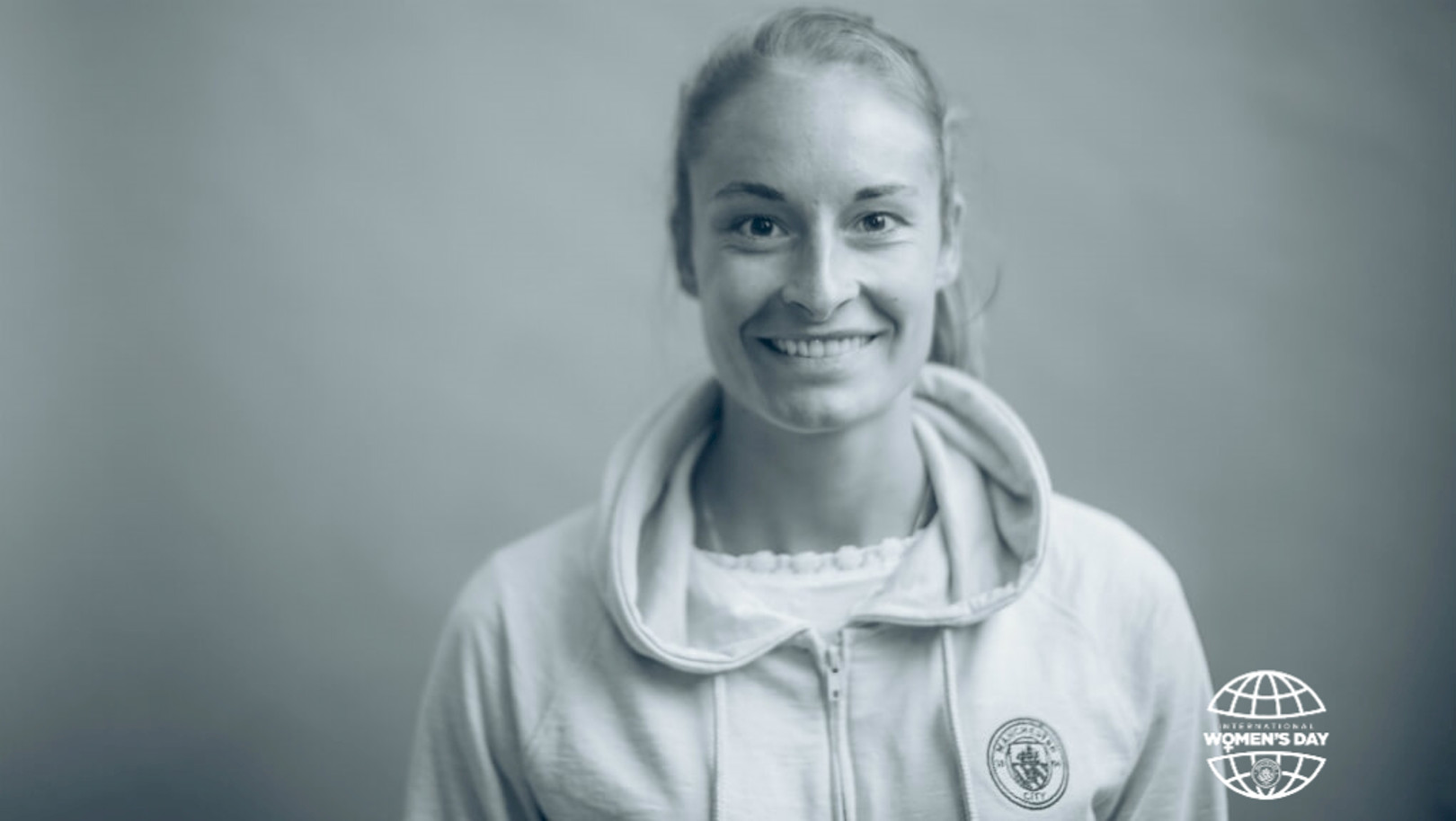Introduced to football by family ties from a young age, they ventured into the sport via the only available option to them – boys’ teams – for the sheer love of playing and without serious consideration of pursuing an occupation in the sport.
At that tender age, with no prejudice from their peers, who simply admired their ability and camaraderie, they flourished, playing solely for fun – until the age and opportunity for career progress arrives.
For many young girls, the thought of playing football professionally never entered their mind. Those opportunities did not exist in many countries and there were very few role models to live up to. Quite simply, if you wished to follow your dream, you had to take an enormous risk and move abroad – and at a very young age.
READ: City to unveil women’s team exhibition
WATCH: Karen Bardsley | IWD five-a-side
As if those youngsters had not sacrificed enough – time, effort and money, plus social events due to weekend matches or midweek training, and perhaps even dietary restrictions – now, a time has arrived where they are required to make a pivotal choice. To put it bluntly: it’s ‘now or never’ and to make matters worse, with other members of their team in the same position, the pressure to perform on the pitch has never been higher.
That’s when the abuse begins – the nasty comments, the condescension, the questions from the parents of their male counterparts: “Why is that girl playing instead of my son?”
The anger rises when said girl outperforms their child and receives deserved acclaim. It’s an issue that still rears its ugly head even to this day at grassroots level and beyond. Only now, those young girls are not alone in those male-dominated teams anymore. In fact, now there are girls-only teams and most importantly, walked pathways and real opportunities to pursue a career in football.
The current crop of professionals who experienced difficult journeys into the game often recall their worst moments of similar themes and although women’s football in the United Kingdom is now reaching a wider audience, with increased attendances and media coverage than ever before, there is still a long way to go.
In the quest for change, those hardy souls have dedicated their efforts to championing the game, inspiring the younger generations and breaking down those barriers which have too often proved detrimental to a young girls’ ambitions.
Tessa Wullaert is one of those many ambassadors – the passion evident in her eyes, as she tells the story of her journey from Tielt, Belgium to Manchester, England, where she now dons the sky blue of City, standing proud (though humble) as her country’s all-time top goalscorer at the age of just 25.
Three years ago, she was forced to make a life-changing choice: to settle in her home country or to follow her heart. Thankfully for the footballing world, she chose the latter, although the heart-wrenching decision heralded much sacrifice.
“It would have been my dream to have stayed at home and been a professional soccer player,” she admits. “It’s a shame that you cannot be professional in Belgium.
“To have been able to go to training, come home and have dinner with friends and family… That would have been amazing.
“I had never dreamed of playing professionally (when I was young) but it came when I was doing an internship at school.
“When I went to high school, I had to combine soccer and my internship. They were pretty hard days and then I decided: this is not the life I want – the combination.
“I couldn’t give 100% for soccer, or 100% for work either, so I decided to go professional and I don’t regret it.
“I received my diploma at 22 and I had to make a decision and I moved to Germany to join Wolfsburg.
“I wouldn’t have done it any other way. It was a good decision, starting out on my own at 22, living on my own, cooking for myself!
“Luckily, my parents were there to help me but I feel I made the right choice at the right moment.
“I went to a big club and now I’m at an even bigger club. I’m not complaining at all!”
Wullaert’s love story with the beautiful game began long before she was born. Her mother and father first met through football – her maternal grandfather was her father’s trainer – and the family’s romance with the sport continued through the generations.
“It was soccer from the beginning,” Wullaert laughs. “My earliest memory was on the playground in school with my friends when I was five.
“I played and it went quite well so the boys asked me if I wanted to join their team. That’s how it started.
“My first team was called Wakken but it doesn’t exist anymore. The field is not a recreation field for dogs!
“I was just having fun, playing with the ball with my friends after school. Soccer was always about having fun for me – it still is. That’s the most important thing and as long as I was having fun, I never listened to anyone else.”
It is hard not to listen though, when so many are critical of you and your choices. Happily, Wullaert’s desire, coupled with the shared experiences of a close friend – another budding female footballer – served to overcome the hardships.
The forward now hopes her determination to succeed will encourage others to follow suit. So dedicated to the cause is she, the phrase ‘girl power’ is literally emblazoned onto her skin.
“I was lucky that until I was 15, I always played with another girl,” she explained. “We were always together in the locker room and that was a good thing.
“A few problems started when we were 15 years old and boys were on the bench with the girls on the field. The parents didn’t understand, saying there was no future in women’s soccer but I think we proved them wrong!
“I’m quite a big fighter for women’s rights – that’s why I have ‘girl power’ tattooed on my foot.
“When the ‘Equal pay, equal play’ movement happened, I tweeted about it for the (Belgian) Red Devils. There was a big discussion about it in Belgium – a lot of newspapers wrote about it and now people know the difference is quite big.
“It had the impact I wanted but we have a long way to go in Belgium.”
In terms of her own role models, Wullaert admits there were few, but one coach in particular had a major influence on her career, actioning a positional switch, which unlocked the door to greatness.
Wullaert reflected: “I never had an idol. I never looked up to anyone because back then, the Belgian national team didn’t mean a lot so there wasn’t really anyone who was an idol.
“There was one girl who won the Champions League in 2009 – Femke Maes – that’s the biggest achievement a Belgian girl could get. She was a big role model.
“I think along the way, you realise the impact people have had – but you don’t realise at the time.
“It’s important that you’re grateful to them afterwards and thank them.
“For example, when I played with the boys, I was a central defender and then in Germany, I was a winger. No-one believes that but it’s true!
“I was actually quite a good defender! I had a big guy next to me and he did all the duels. I just closed it with my speed. We were a good duo.
“One day, the coach made the decision and I went from the backline to an attacking position and I felt good there. Now, attacking midfield is my thing!”
The move proved a masterstroke and the Belgian quickly earned a reputation as one of Europe’s most prolific forwards. At the age of 17, she received her first senior international call-up and eight years later, she stands as the record goalscorer for her country.
Ever grounded though, Wullaert is not one to boast.
“I was just doing my thing!” she smiles. “It came along the way – I didn’t think about it.
“I just scored goals while I was having fun. The biggest thing I’ve learned along the way is: just have fun. Don’t think; don’t stress.
“You play the best games without stress. Just follow your instinct and have fun.
“Without stress, you make the best calls – not thinking. I think it comes natural. It’s not a good thing to have to think before a goal.
“That’s how I enjoy games, by following my gut and instinct. It’s worked out quite well!
“I just want to look back and say I was happy and that I enjoyed my time. I think that’s the most important thing.”
A national heroine dubbed ‘the girl on fire’ following her blazing start to life in Manchester, here’s hoping the Belgian Red Flame will pass the torch to the next Tessa Wullaert.











